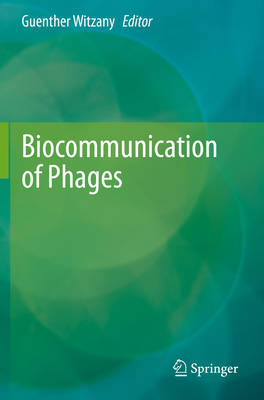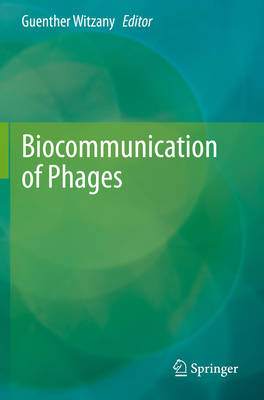
- Retrait gratuit dans votre magasin Club
- 7.000.000 titres dans notre catalogue
- Payer en toute sécurité
- Toujours un magasin près de chez vous
- Retrait gratuit dans votre magasin Club
- 7.000.0000 titres dans notre catalogue
- Payer en toute sécurité
- Toujours un magasin près de chez vous
Biocommunication of Phages
Description
This is the first book to systemize all levels of communicative behavior of phages. Phages represent the most diverse inhabitants on this planet. Until today they are completely underestimated in their number, skills and competences and still remain the dark matter of biology.
Phages have serious effects on global energy and nutrient cycles. Phages actively compete for host. They can distinguish between 'self' and 'non-self' (complement same, preclude others). They process and evaluate available information and then modify their behaviour accordingly. These diverse competences show us that this capacity to evaluate information is possible owing to communication processes within phages (intra-organismic), between the same, related and different phage species (interorganismic), and between phages and non-phage organisms (transorganismic). This is crucial in coordinating infection strategies (lytic vs. lysogenic) and recombination in phage genomes.
In 22 chapters, expert contributors review current research into the varying forms of phage biocommunication and Phagetherapy.
Biocommunication of Phages aims to assess the current state of research, to orient further investigations on how phages communicate with each other to coordinate their behavioral patterns, and to inspire further investigation of the role of non-phage viruses (non-lytic, non-prokaryotic) in these highly dynamic interactional networks.
Spécifications
Parties prenantes
- Editeur:
Contenu
- Nombre de pages :
- 502
- Langue:
- Anglais
Caractéristiques
- EAN:
- 9783030458874
- Date de parution :
- 30-06-21
- Format:
- Livre broché
- Format numérique:
- Trade paperback (VS)
- Dimensions :
- 155 mm x 235 mm
- Poids :
- 905 g






